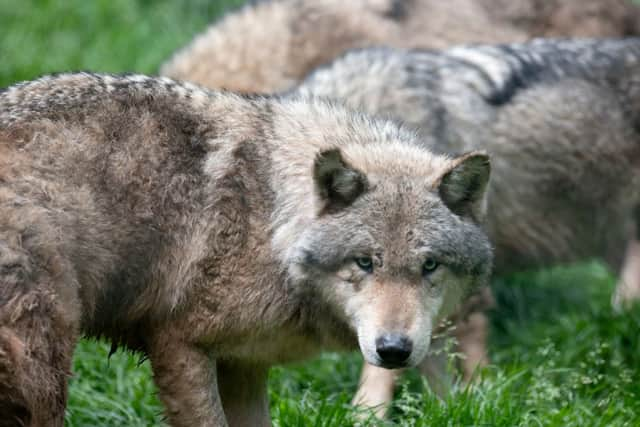Wolves: EU proposing lowering protections for wolves - which could bring wolf hunting back to Europe
and live on Freeview channel 276
Protections which stop wolves from being hunted in much of Europe may soon be lost, with some conservation groups slamming the move as a backwards step for both biodiversity - and coexistence with wildlife.
The European Commission, which makes up part of the European Union's executive, has this week proposed changing the international status of wolves from ‘strictly protected' to just ‘protected' under the Bern Convention - based on new data suggesting their population has increased to more than 20,000 animals across 23 countries. The strictly protected status means that animals can only be hunted in exceptional circumstances, such as when they pose a risk to human life or safety.
Advertisement
Hide AdAdvertisement
Hide AdNow they were starting to clash with humans and were behind "concerning livestock damages" in some regions, especially in parts of Europe where they had long been absent. In a statement, the Commission said the wolves had been a conservation success story, made possible by protective legislation, more favourable public attitudes and habitat improvements. But they said the "changing reality on the ground" meant their legal protection status needed to be made more flexible so communities could manage the risk - while still protecting the species.


President Ursula von der Leyen said, who The Guardian reports had a pony killed by wolves last year, said: “The comeback of wolves is good news for biodiversity in Europe. But the concentration of wolf packs in some European regions has become a real danger especially for livestock."
Local authorities had been asking for more flexibility in how they managed wolf populations, she said, and Europe needed to facilitate this. "I am deeply convinced that we can and will find targeted solutions to protect both, biodiversity and our rural livelihoods.”
Agriculture Commissioner Janusz Wojciechowski said that from speaking with farmers and rural communities, "the return of wolves has presented significant challenges in a number of areas, especially for pastoralism, in an already difficult socio-economic context". Environment Commissioner Virginijus Sinkevičius added that the Commission remained committed to supporting national and local authorities with funding and guidance - to promote coexistence with wolves and other large carnivores.
Advertisement
Hide AdAdvertisement
Hide AdHowever, not all environmental organisations are convinced downgrading their protection status would be in the wolves' best interests. In a post on X - formerly known as Twitter - BirdLife Europe slammed it as a "baffling decision" founded on unclear data.
The group queried whether it was a "Christmas present" from Ursula von der Leyen to the centre-right EPP Group, and the agricultural lobby. "It certainly is a poisoned gift to the rest of us... Let’s not forget that protecting wolves in Europe is not only a matter of ecological significance, but also a reflection of our commitment to biodiversity conservation and the values of coexistence and tolerance."
Changes to the wolves' protection status are not set in stone. It is now up to the Commission's member states to decide whether to accept the proposal. If it is adopted, the proposal will be submitted by the EU to the Standing Committee of the Bern Convention.
Depending on the outcome of these decisions in the Council and in the Standing Committee of the Bern Convention, the Commission would then be able to propose to adapt the wolf's protection status within the EU.
Comment Guidelines
National World encourages reader discussion on our stories. User feedback, insights and back-and-forth exchanges add a rich layer of context to reporting. Please review our Community Guidelines before commenting.
